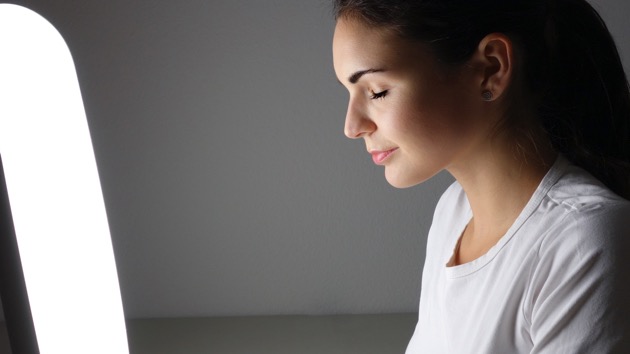
Rocky89/iStock
Rocky89/iStockBy DR. NICHOLAS NISSEN, ABC News
(NEW YORK) — With many areas across the Northern Hemisphere getting less than eight hours of daylight Monday, the Winter Solstice can mean dark times — both physically and emotionally for people around the globe. In fact, millions of Americans develop a winter depression every year, a problem known as seasonal affective disorder (SAD).
SAD can be any lasting change in mood that regularly occurs during particular seasons. But becoming depressed with the shortened days of the winter months is most common.
Our bodies rely on a rhythmic pattern of behaviors and bodily changes known as the circadian rhythm. These changes follow a pattern that is most strongly influenced by our exposure to light, so it may be that changes in our exposure to light contribute to changes in our circadian rhythm and the depression that people can experience in the winter months. In other mammals, the shortened daylight and lengthened nighttime leads their bodies to secrete the sleep compound melatonin over longer periods, causing hibernation. In humans, it has been shown that those with SAD have this same melatonin released over longer periods in the winter months, causing more sleep and depressive behaviors.
If you’re feeling down or depressed and you notice that this pattern tends to repeat during particular seasons (especially in the winter), you may have SAD.
Here are three tips for how to feel better and prevent the winter blues:
Soak up the sun
The lack of bright light exposure is at the core of SAD, so making the effort to get outside can help get to the root of the issue. Daily walks have been shown to be helpful for winter depression. Even on cloudy days, getting outside can expose us to a certain amount of sunlight to help regulate our circadian rhythms and prevent us from falling into a winter depression. If you’re unable to get outside or have cloudy weather, consider trying a light therapy box. Look for 10,000 lux light boxes that you can use for 20 or 30 minutes each day.
Optimize your sleep hygiene
A bedroom should be for two things only: sleep and intimacy. Winter depression can be mitigated by creating healthy sleep habits like avoiding working in the bedroom or watching TV in bed. Create a dark, cool sleep environment that is free from distractions and do calming activities like meditation, prayer and light reading for your final 30 minutes before bed.
Visit your doctor
It is hard to know whether one has SAD or other medical problems; a doctor can help discuss options of medications and therapy. If you ever feel so depressed that you feel in crisis or that your life may be in danger, never hesitate to call 911 or visit the local emergency department.
Nicholas Nissen, M.D., is a clinical fellow and resident physician at Harvard Medical School and a member of the ABC News Medical Unit.
Copyright © 2020, ABC Audio. All rights reserved.